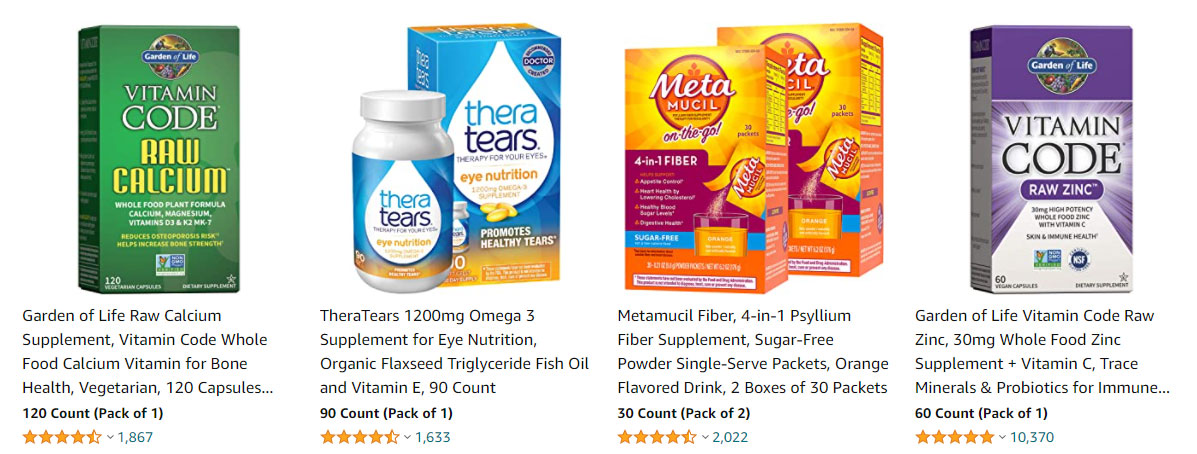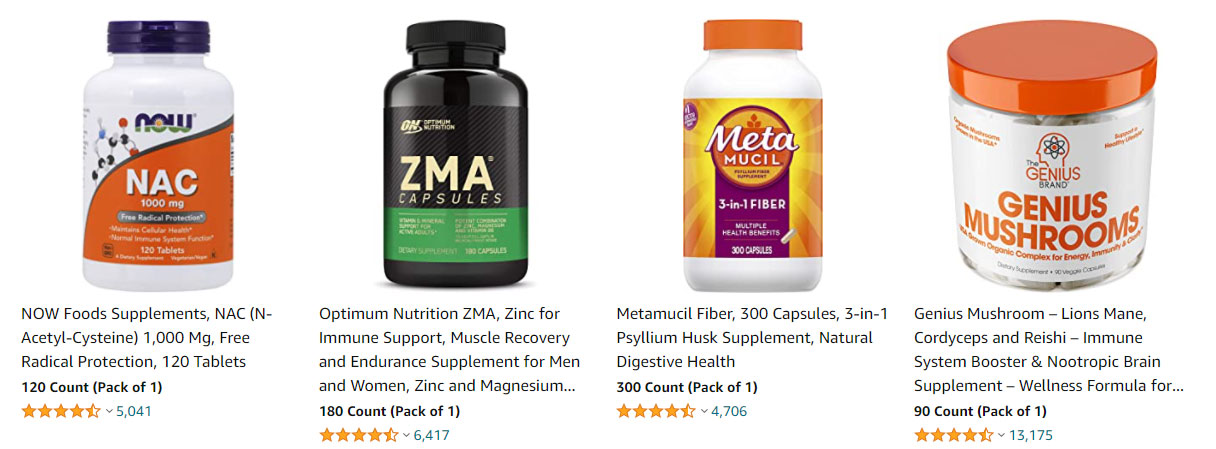What you need to know about dietary supplements
A dietary supplement (also called food supplement or nutritional supplement) supplements the normal diet to provide minerals, vitamins or other substances (probiotics, omega-3 ...) to the consumer.
Considered as foodstuffs rather than medicines, food supplements have a nutritional effect (filling a deficiency) or physiological (boosting the immune system, improving the quality of the skin ...) depending on their composition.
They are sold without prescription and are consumed orally. Some food supplements considered essential (such as iron or folic acid).
Food supplements can take different forms: capsules, tablets, pills, capsules, lozenges, ampoules, liquid solutions, powder ... Similarly, their composition may differ from one product to another: some are natural, others are synthetic. Most food supplements are herbal.
When to take dietary supplements?
The objective of a food supplement is to complete the diet. In other words, you are going to consume food supplements to bring certain elements to your organism, which it needs: vitamins, minerals, fatty acids, trace elements, amino acids?
You will therefore need food supplements at certain times in your life, which are conducive to deficiencies (aging, pregnancy...), or if you follow a restrictive diet (vegetarian, vegan, gluten-free...) which deprives you of certain substances.
Even if food supplements are not medicines, it is preferable to take them on the advice of your doctor and following a blood test that has confirmed a deficiency or risk of deficiency.

Choosing the right food supplements
To get the most out of the benefits of dietary supplements, it is important to choose your products carefully. The choice of a food supplement is based on many factors: the seller, the organic and natural character of the food supplement, the respect of the French health standards, the composition (and in particular the content of active ingredients), the packaging, the price...
Favour natural food supplements
First rule to choose a food supplement well: to privilege natural food supplements.
Natural food supplements are derived from plants (plants, fruits, roots), while synthetic food supplements are developed in the laboratory, with components from petrochemicals. During the elaboration of a natural food supplement, one will not modify the active principle of the plant: it is essential so that the food supplement brings you all the desired nutrients. The natural food supplements are thus more effective, but also better for the environment.
The distinction between a natural food supplement and a synthetic food supplement can be difficult to make: many brands present their food supplements as natural when they are largely composed of synthetic active ingredients, and only some components of the supplement are natural (plant extracts or essential oils). However, these excipients sometimes have a harmful impact on health, including parabens, dyes, synthetic flavorings or aspartame. This is why you should favour sellers who prefer pure products without additives and excipients, such as the Dynveo dietary supplement laboratory.
Pay attention to the concentration of active ingredients
The concentration of active ingredients is important because it is this concentration that will determine the effectiveness of the food supplement. The active principles are the substances contained in the plants (omega 3, vitamins, minerals, antioxidants, flavonoids...) and which will stimulate the functions of your organism. For example, a food supplement based on turmeric will have anti-inflammatory effects, more or less effective depending on its concentration in curcuminoids.
Read the labels
To read the labels well will enable you to know the concentration in active ingredients of your food supplement, but also the recommended daily dose and the warnings before use, which are obligatory mentions. Certain food supplements must not be consumed with other drugs or other substances, under penalty of causing side effects.
On the label of your food supplement, you must find the following elements :
• The sales denomination "dietary supplement".
• Recommended daily dose and precautions for use.
• Nutrient categories and percentage of RDAs (Recommended Daily Intakes).
You can also check that all the ingredients of the food supplement are part of the list published by the same decree, and that their content corresponds to the maximum allowable dosage.
To consume food supplements well
To consume your food supplements properly, always make sure to respect the recommended daily dose as well as the maximum duration of consumption: it is repeated, even if food supplements are not medicines, overdosing can have harmful effects. Also avoid taking several food supplements at the same time, unless advised by your doctor. For example, taking iron and vitamin C at the same time may cause unwanted side effects. In general, always seek the advice of a professional (attending physician, naturopath...) before starting a food supplement cure!


